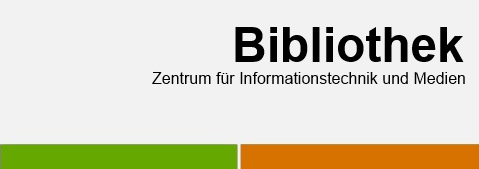Filtern
Erscheinungsjahr
Dokumenttyp
- Konferenzveröffentlichung (344) (entfernen)
Sprache
- Englisch (210)
- Deutsch (132)
- Französisch (1)
- Rumänisch (1)
Schlagworte
- Bionik (9)
- Akkreditierung (3)
- Gespenstschrecken (3)
- Haftorgan (3)
- Strukturoptimierung (3)
- adhesion (3)
- stick insects (3)
- Competency-Oriented Exams (2)
- E-Learning (2)
- Field measurement (2)
- Human-Robot Interaction (2)
- Leichtbau (2)
- Solar modules (2)
- Sportsoziologie (2)
- Sportökonomie (2)
- Tetraplegie (2)
- Virtuelle Hochschule (2)
- 360° Panorama (1)
- API 1130 (1)
- Abusive Supervision (1)
- Air handling unit (1)
- Akademischer Grad (1)
- Alltagsunterstützende Assistenzlösung (1)
- Alternative Geschäftsmodelle (1)
- Arbeitsbelastung (1)
- Artificial Intelligence (1)
- Assisted living technologies (1)
- Assistive robotics (1)
- Augmented Reality (1)
- Automatisierung, Journalismus, Literaturüberblick (1)
- Automatisierungstechnik (1)
- Autonomous Agents (1)
- Bachelor-Studiengang (1)
- Bachelorstudiengang (1)
- Bachelorstudium (1)
- Belgien (1)
- Berufsbefähigung (1)
- Bildverarbeitung (1)
- Biomimetics (1)
- Bologna-Prozess (1)
- Building Information Modeling (1)
- Burnout (1)
- COIL (1)
- CPM (1)
- Climate change (1)
- Constructive Alignment (1)
- Continuous Assessment (1)
- Continuous Queries (1)
- Crowdfunding (1)
- Curriculanormwert (1)
- Daseinsvorsorge (1)
- Datalog (1)
- Datenjournalismus (1)
- Deductive Databases (1)
- Deutschland (1)
- Deutschland / Technische Regeln für brennbare Flüssigkeiten (1)
- Digitalisierung (1)
- Distributed Software Development (1)
- Elastizitätsmodul (1)
- Elektrolyseure (1)
- Energieeffizienz (1)
- Erneuerbare Energien (1)
- Erweiterte Realität <Informatik> (1)
- Exams with Third-Party Applications (1)
- Fehlererkennung (1)
- Fehlerortung (1)
- Flipped Classroom (1)
- Formative Assessment (1)
- Future capacity needs (1)
- Gehirn & Computer (1)
- Gentrifizierung (1)
- Großveranstaltung (1)
- Hochschulbildung (1)
- Human-centered computing (1)
- Hydraulic compression, Carbon Nano Fibers, PEM Fuel Cells, Catalyst utilization (1)
- Hygiene (1)
- Incremental Evaluation (1)
- Informatik (1)
- Informatikstudium (1)
- Ingenieurstudium (1)
- Interactive Voting Systems (1)
- Interaktion (1)
- Intercultural Collaboration (1)
- Internationalisierung (1)
- Journalismus (1)
- Journalistenausbildung (1)
- Juristenausbildung (1)
- KMU (1)
- Kalman filter (1)
- Klimatechnik (1)
- Klimawandel (1)
- Klimaänderung (1)
- Kohlenstoff-Nanoröhre (1)
- Kreditpunktesystem (1)
- Künstliche Intelligenz (1)
- Leak detection (1)
- Leckerkennung (1)
- Leckortung (1)
- Lecksuchgerät (1)
- Lecküberwachung (1)
- Leistungsreserve (1)
- Machine Learning (1)
- Maschinenintelligenz (1)
- Master-Studiengang (1)
- Masterstudiengang (1)
- Masterstudium (1)
- Mastery Experience (1)
- Mathematikstudium (1)
- Maus (1)
- Membran-Elektroden-Einheit (1)
- Mensch-Roboter (1)
- Menschheitsentwicklung (1)
- Mikrofotografie (1)
- Mixed Reality (1)
- Modularisierung (1)
- Multi-Agent System (1)
- Nachhaltigkeitsreporting (1)
- Naturwissenschaftliches Studium (1)
- NeRF (1)
- Online Programming Exams (1)
- Online Supervision (1)
- Online-Studium (1)
- PEM Electrolysis, Hydrogen, Hydraulic Compression, High Pressure (1)
- PEM fuel cells; electrode preparation; carbon nanofibers; in-situ performance test (1)
- Peer Assessment (1)
- Peer Instruction (1)
- People with disabilities (1)
- Performance prediction (1)
- Polymer-Elektrolytmembran-Brennstoffzelle (1)
- Project-based Learning (1)
- Qualifikationsrahmen (1)
- RLT-Geräte (1)
- Raumluftströmung (1)
- Rechtssprache (1)
- Regeln der Technik (1)
- Rescue Robotics (1)
- Robot assistive drinking (1)
- Robot assistive eating (1)
- Robotik (1)
- Selbstoptimierung (1)
- Sensortechnik (1)
- Skalierung (1)
- Small UAVs (1)
- Smart Grid (1)
- Social Learning (1)
- Standortfaktor (1)
- Standortpolitik (1)
- Student Activation (1)
- Studierbarkeit (1)
- Supercomputer (1)
- TRFL (1)
- Temperature coefficients (1)
- Testsystem (1)
- Transformative Teaching (1)
- Update Propagation (1)
- Urban heat island (1)
- Visual Monocular SLAM (1)
- Wasserstoffenergietechnik (1)
- Weiterbildung (1)
- Wirtschaftsjurist (1)
- Workload (1)
- Wärmepumpen, VDI 4645, Jahresarbeitszahl, Wärmewende, Bewertungstool (1)
- Young´s modulus (1)
- Zustandsmaschine (1)
- biomimicry (1)
- bionik robotik ameisen (1)
- consent banner (1)
- cookie banner (1)
- cookies (1)
- human-centered design (1)
- hybrid sensor system (1)
- leak locating (1)
- leak monitoring (1)
- participatory design (1)
- privacy (1)
- risk management (1)
- sensor fusion (1)
- state machine (1)
- user acceptance (1)
- web measurement (1)
- Ähnlichkeitstheorie (1)
- Übersetzung (1)
Institut
- Institut für Internetsicherheit (69)
- Westfälisches Institut für Gesundheit (63)
- Informatik und Kommunikation (45)
- Westfälisches Energieinstitut (35)
- Maschinenbau Bocholt (29)
- Wirtschaft und Informationstechnik Bocholt (26)
- Elektrotechnik und angewandte Naturwissenschaften (22)
- Wirtschaftsrecht (8)
- Institut für Innovationsforschung und -management (5)
- Institut für biologische und chemische Informatik (5)
An automated pipeline for comprehensive calculation of intermolecular interaction energies based on molecular force-fields using the Tinker molecular modelling package is presented. Starting with non-optimized chemically intuitive monomer structures, the pipeline allows the approximation of global minimum energy monomers and dimers, configuration sampling for various monomer-monomer distances, estimation of coordination numbers by molecular dynamics simulations, and the evaluation of differential pair interaction energies. The latter are used to derive Flory-Huggins parameters and isotropic particle-particle repulsions for Dissipative Particle Dynamics (DPD). The computational results for force fields MM3, MMFF94, OPLSAA and AMOEBA09 are analyzed with Density Functional Theory (DFT) calculations and DPD simulations for a mixture of the non-ionic polyoxyethylene alkyl ether surfactant C10E4 with water to demonstrate the usefulness of the approach.


